
Sophia Webster
Graduate student Sophia Webster is trying to fight Zika by engineering mosquitoes that won’t spread the disease....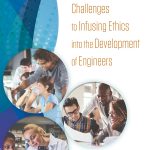
Overcoming Challenges to Infusing Ethics into the Development of Engineers: Proceedings of a Workshop (2017)
While all technologies have societal and ethical implications, emerging technologies (e.g. artificial intelligence and genetic engineering) often pose unique ethical challenges. As advances are made in the fields of engineering, it is vital that issues...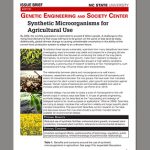
Synthetic Microorganisms for Agricultural Use
By 2050, the world’s population is estimated to exceed 9 billion people. A challenge to this rising food demand is that crops will have to be grown on the same or less land as today. Additionally, global climate change is causing considerable uncertainty in the ability of the current food production system to adapt to an unknown future. To address these issues sustainably, scientists from many disciplines have been investigating ways to increase crop yields and prepare for a changing climate. Considerable effort has focused on enhancing the traits of the crop plants themselves, to enhance their growth, make them resistant to disease, or tolerant to environmental stressors like drought or high salinity conditions. Conversely, a growing area of research is looking at how microorganisms, such as bacteria and fungi, influence these plant characteristics....Continue reading "Synthetic Microorganisms for Agricultural Use"
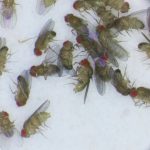
Variation at a Central Metabolic Gene Influences Male Fruit Fly Lifespan
Why do females outlive males? For fruit flies, the answer can be found in the expression of an important metabolism gene....Continue reading "Variation at a Central Metabolic Gene Influences Male Fruit Fly Lifespan"
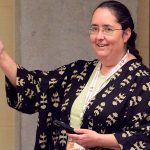
Leadership in Public Science: Meet Jean Goodwin
Leadership in Public Science cluster member Jean Goodwin studies how scientists and the public communicate with each other....Continue reading "Leadership in Public Science: Meet Jean Goodwin"
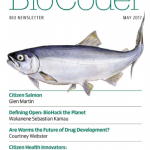
Todd Kuiken in BioCoder: Citizen Health Innovators
They say that necessity is the mother of invention. Many would argue that their greatest necessity is health. So what happens when treatments are ineffective or unavailable? Today, in the age of crowdfunding, some people are taking matters into their own hands and developing their own treatments, including surgical techniques, gene therapies and molecular therapies. GES Senior Research Scholar Dr. Todd Kuiken, together with international science policy expert Eleonore Pauwels, of The Wilson Center, explores the risks, regulatory issues, and implications of the emerging DIY, "patient-powered" health research movement in the Spring 2017 issue of BioCoder....Continue reading "Todd Kuiken in BioCoder: Citizen Health Innovators"
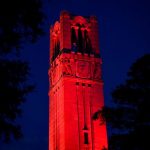
NC State Honors Outstanding Faculty
NC State recognized 28 faculty members for their dedication to teaching, learning, research and service during the 2017 Celebration of Faculty Excellence on May 2. The annual event honors faculty who have won prestigious state, national and international awards and created new knowledge and advancements in their respective disciplines....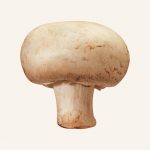
Jennifer Kuzma quoted in Slate on biotech regulatory issues
Biotechnology is moving at lightening speed, especially with the advances in genetic engineering and synthetic biology. However, policies and regulations lag far behind, leaving potentially dangerous gaps in classification and oversight. Dr. Jennifer Kuzma, GES...Continue reading "Jennifer Kuzma quoted in Slate on biotech regulatory issues"
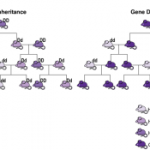
Zack Brown publishes article in Choices on the ‘Economic, Regulatory and International Implications of Gene Drives in Agriculture”
Agricultural pests, such as fruit flies and mosquitoes, cause billions of dollars in crops losses and spread life-threatening diseases, including malaria and Zika. Many researchers, including NC State IGERT students, are working to develop gene...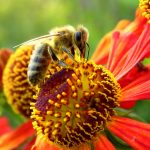
Todd Kuiken publishes Slate article discussing concerns with DARPA’s SynBio Initiatives
GES Research Scholar Dr. Todd Kuiken has concerns about DARPA, who’s investments are “bending the entire field of synthetic biology towards military applications.” Will DARPA’s initiatives lead to the militarization of the natural environment?...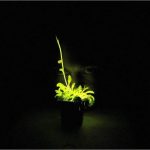
Todd Kuiken quoted in Atlantic article on failure of glowing plant kickstarter
Remember the Kickstarter campaign that raised half a million dollars to fund the invention of glowing houseplants? Todd Kuiken, GES research scholar and synthetic biology expert, weighs in on the recent announcement of the project’s failure...Continue reading "Todd Kuiken quoted in Atlantic article on failure of glowing plant kickstarter"

Jennifer Kuzma publishes Trails and Trials in Biotechnology Policy
Reflecting on her journey from undergrad at a small liberal arts college to scientist, professor and world-renowned expert on governance for emerging biotechnologies, Jennifer Kuzma has published a chapter in Women in Sustainable Agriculture and...Continue reading "Jennifer Kuzma publishes Trails and Trials in Biotechnology Policy"
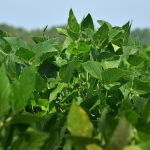
NAS Committee Responds to Critique of Gene Engineering Report
NC State’s Fred Gould, who led a National Academies committee that issued a 2016 report on genetically engineered crops, pens a letter in Nature Biotechnology to respond to a report critique....Continue reading "NAS Committee Responds to Critique of Gene Engineering Report"
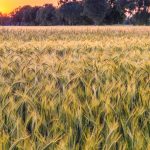
Study IDs Ways to Encourage ‘Refuge’ Planting, Slowing Resistance to Bt Crops
A study finds a shortfall in the amount of “refuge” cropland being planted in NC – increasing the rate at which crop pests evolve the ability to devour genetically engineered Bt crops....Continue reading "Study IDs Ways to Encourage ‘Refuge’ Planting, Slowing Resistance to Bt Crops"

The Importance of Seeds: a Q&A with Rob Dunn
There is little genetic diversity among the crops that are most important for feeding people around the world. Rob Dunn’s new book explores this issue and why it matters....Continue reading "The Importance of Seeds: a Q&A with Rob Dunn"